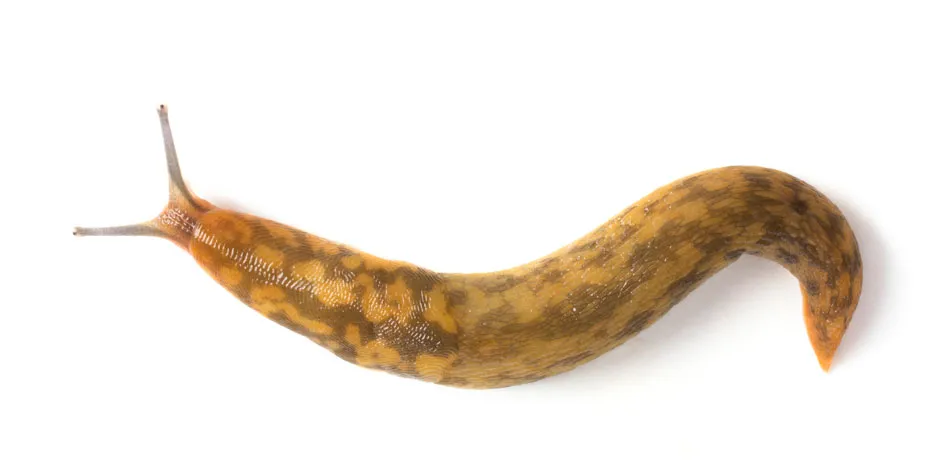Here’s a question we’re hoping you’d only wonder out of curiosity and not experience: why does salt kill slugs and snails?
The answer is simpler than you might suspect. Rather than by a complex chemical reaction, salt acts as a snail and slug’s kryptonite by dehydrating its slimy exterior.
“Salt essentially draws the water out of their skin – an osmosis effect – and they die within minutes of dehydration,” says Dr Gordon Port, senior lecturer at Newcastle University.
“Slugs and snails are extremely dependent on a high water content in their bodies. They constantly need water to replenish any the lose.
“We don’t know how much pain they feel when in contact with salt, but a slug or snail caught in granules will try to wiggle away while exuding a lot of mucus to clean their skin.”
In other words, unless you want snail or slug snot pooling on your kitchen floor, it isn’t something that’s recommended – by scientists or the animals themselves.
But how should you get rid of snails and slugs out of your house? Is there a humane way of doing it? And how on Earth did they get inside in the first place? Slide down to find a (somewhat slimy) trail of insights.
How do slugs get into my house?
As slugs (and, to a lesser extent, snails) can squish themselves into tiny spaces, it may be difficult to find out how they enter your house.
“Slugs are extremely flexible. Even though most have a small shell (or internal shell), they can fit through most small holes, such as the small holes that may exist around pipework. However, they can also come through the gaps under doors,” says Port.
However, if you see a snail trail across your kitchen in the morning, don’t spend too long looking for the guilty gastropods in question. A slug is likely to exit the house during daytime, escaping the dehydrating sun and any predators in the best moist corner they can find.
“Then as soon as it gets dark, they'll become active again,” explains Port. “Most slugs and snails only travel a few metres each night. And to help them find their way back to the same house each night, they’ll follow the scent of their old slime.
“It’s like how Hansel and Gretel dropped breadcrumbs behind them. Mind you, slug and snails would eat their trail if it was made from breadcrumbs.”
Read more:
How can I get rid of slugs in the house? Do coffee grounds work?
Heard the old wives’ tale that a small barrier of coffee grounds will stop slugs and snails? Well, it’s true. Sort of.
“It’s the caffeine they don’t like,” explains Port. “However, the amount of caffeine needed to deter them is so high that using it would be dangerous to everything else, including us!”
Indeed, as research by the United States Department of Agriculture's Agricultural Research Service found, a 1 per cent caffeine solution was found to repel slugs and snails. However, one cup of instant coffee only contains about 0.05 per cent caffeine (20 times less).

“If you want to keep slugs and snails from invading your house, the most reliable barrier is copper or zinc – they really don’t like sliding over sheets of those materials. They’re actually toxic to slugs, so they’ll avoid coming through a hole into your kitchen if there’s copper inside. You could also put a band of copper around a plant pot to protect it.”
How long do slugs live for? What about snails?
Although snails and slugs generally live for a year or two, many can live for longer – especially if they go into a sleep-like state called estivation (like hibernation, but in warm weather).
Although many snails are only in this state of estivation for a few months, some dig in for longer. Much longer. For instance, in 1846, the British Museum glued an apparently dead snail to a display only for it to reportedly wake four years later.
According to contemporary Canadian writer Grant Allen, the “grateful” animal was even given a bath after waking and “began to take a cursory survey of British institutions with his four eye-bearing tentacles," Only at a snail’s pace, of course.
Read more:
No slugs or snails were harmed in the making of this article. Not even the mean ones.